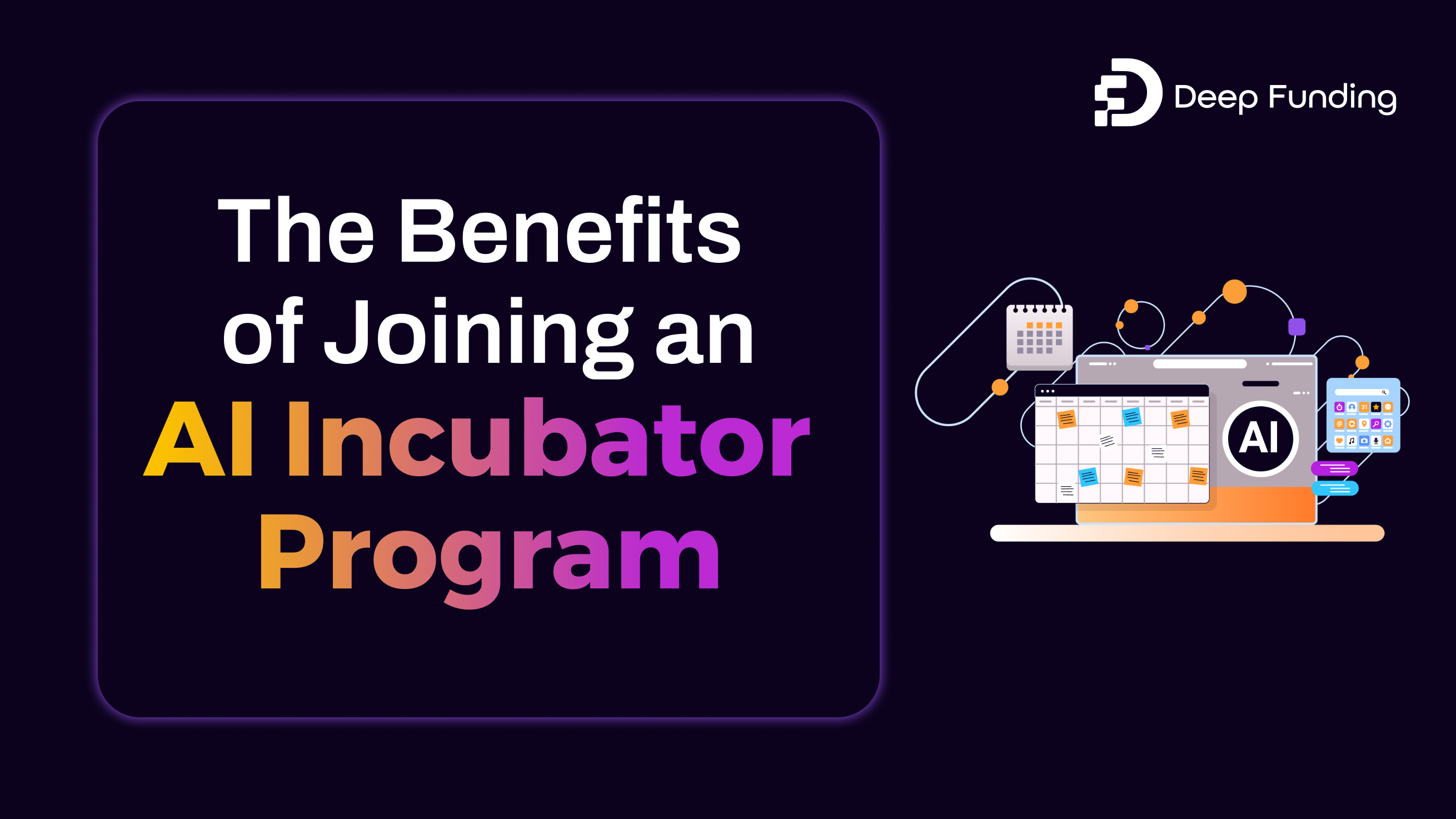The Benefits of Joining an AI Incubator Program


What’s an AI Incubator?
In 2023 the total number of startup accelerators was estimated to be around 2000, these are organizations geared towards speeding up the growth and success of start-ups and early-stage companies. Incubation is usually done by institutions with experience in the business and technology world. Accelerator programs are instrumental in the growth of AI startups, contributing more than just financial aid. They offer crucial strategic advice, mentorship, and access to broad networks.
AI startup accelerators, AI startup incubators, and AI corporate programs empower scientists and entrepreneurs with ingenious AI ideas, besides, they can provide resources, a network, and support to build and scale an AI startup, not to mention access to funding, access to cloud credits, introductions to partners, collaborative workspaces, networking opportunities and mentorship programs from people who’ve been through it before.
“AI-focused entrepreneurial ventures are expected to have a significant impact on the global economy and technological progress. By 2030, they are expected to contribute around 16 trillion USD to global GDP, primarily driven by productivity gains, personalization, and quality improvements.” (Economics & Education, December 2023).
Basically, incubators help spark new ideas and businesses by creating a supportive space where startups can find important resources and guidance. Startups are important for boosting economic growth, driving innovation, and creating job opportunities. They shake things up in various industries by introducing new solutions, disrupting old models, and bringing fresh energy to the business scene.
Access to funding through business incubators plays a pivotal role in shaping the growth and sustainability of startups. These incubators provide the financial resources and support needed to refine products or services, scale operations, and expand market reach. With their assistance, startups can increase production capacity, penetrate new geographic markets, and implement effective marketing strategies to capture a larger share of their target audience, driving long-term success and competitiveness.
Impact of Business Incubators on Local Economies
Here are a few examples of how incubators have significantly impacted local economies by attracting investors and entrepreneurs, fostering innovation, and driving economic growth through job creation across diverse sectors:
Silicon Valley stands as a global benchmark for the transformative power of business incubators. Home to renowned incubators and accelerators, it has become synonymous with technological innovation, attracting talent and investment from around the world. The region’s robust entrepreneurial ecosystem has fueled substantial economic growth and created countless jobs.
Austin has emerged as a dynamic tech hub with a thriving startup scene. Incubators and accelerators have been instrumental in nurturing startups across various industries, including technology, music, and healthcare. This growth has positioned Austin as a major destination for both entrepreneurs and investors, driving its economic transformation.
Boston boasts an innovation ecosystem powered by prominent incubators and world-class academic institutions. The city has become a leader in biotechnology, healthcare, and technology startups. Collaborative efforts within its incubators have spurred job creation, knowledge sharing, and sustained economic growth.
Denver has experienced a surge in entrepreneurial activity, supported by an expanding network of business incubators. These incubators have driven the growth of startups in industries such as renewable energy, outdoor recreation, and technology, contributing significantly to the city’s economic development.
As Artificial Intelligence continues to reshape industries worldwide, the number of startups developing and leveraging AI technologies is rapidly growing. If you’re a startup founder aiming to create the next groundbreaking AI venture, like OpenAI, it’s essential to recognize that success requires more than just technical expertise. You’ll also need access to resources, a strong support network, and strategic guidance to build and scale your AI startup effectively. Here’s the llist of the top10 startup programs.
Top AI Startup Programs
When selecting the right AI startup accelerator, incubator or startup programs, it’s important to look beyond immediate benefits like funding. The factors to evaluate are the accelerator’s track record, network, and industry relevance. A program with a proven history of success in AI startups can offer invaluable mentorship from founders and AI experts who understand the specific challenges of building AI-driven solutions.
References
Become part of the driving force behind decentralized AI innovation. Collaborate, contribute, and help shape the future of our community.
Copyright 2025 © Theme Created By DeepFunding, All Rights Reserved.